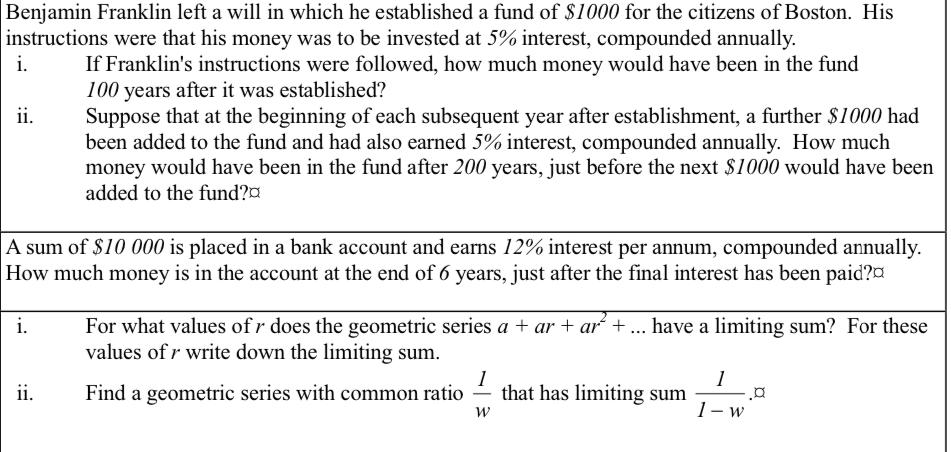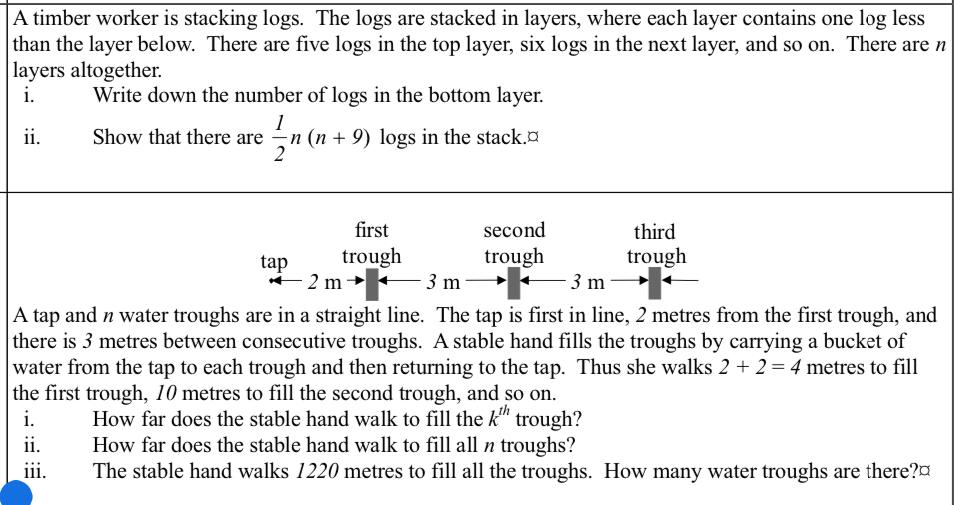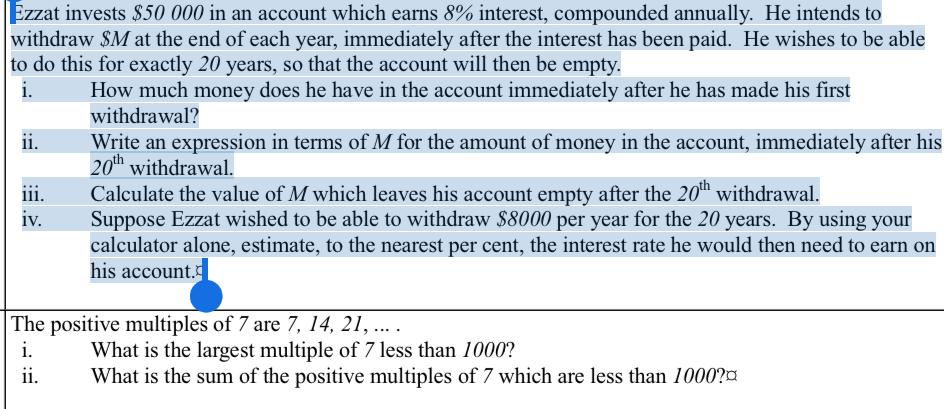Answered step by step
Verified Expert Solution
Question
1 Approved Answer
Benjamin Franklin left a will in which he established a fund of $1000 for the citizens of Boston. His instructions were that his money



Benjamin Franklin left a will in which he established a fund of $1000 for the citizens of Boston. His instructions were that his money was to be invested at 5% interest, compounded annually. i. ii. If Franklin's instructions were followed, how much money would have been in the fund 100 years after it was established? Suppose that at the beginning of each subsequent year after establishment, a further $1000 had been added to the fund and had also earned 5% interest, compounded annually. How much money would have been in the fund after 200 years, just before the next $1000 would have been added to the fund? A sum of $10 000 is placed in a bank account and earns 12% interest per annum, compounded annually. How much money is in the account at the end of 6 years, just after the final interest has been paid? i. For what values of r does the geometric series a + ar + ar + ... have a limiting sum? For these values of r write down the limiting sum. 1 1 ii. Find a geometric series with common ratio that has limiting sum W 1-w A timber worker is stacking logs. The logs are stacked in layers, where each layer contains one log less than the layer below. There are five logs in the top layer, six logs in the next layer, and so on. There are n layers altogether. Write down the number of logs in the bottom layer. i. ii. Show that there are n (n+9) logs in the stack. tap 2 m first trough second trough third trough 3 m 3 m A tap and n water troughs are in a straight line. The tap is first in line, 2 metres from the first trough, and there is 3 metres between consecutive troughs. A stable hand fills the troughs by carrying a bucket of water from the tap to each trough and then returning to the tap. Thus she walks 2 + 2 = 4 metres to fill the first trough, 10 metres to fill the second trough, and so on. i. ii. iii. How far does the stable hand walk to fill the kth trough? How far does the stable hand walk to fill all n troughs? The stable hand walks 1220 metres to fill all the troughs. How many water troughs are there? Ezzat invests $50 000 in an account which earns 8% interest, compounded annually. He intends to withdraw $M at the end of each year, immediately after the interest has been paid. He wishes to be able to do this for exactly 20 years, so that the account will then be empty. i. ii. iii. iv. How much money does he have in the account immediately after he has made his first withdrawal? Write an expression in terms of M for the amount of money in the account, immediately after his 20th withdrawal. Calculate the value of M which leaves his account empty after the 20th withdrawal. Suppose Ezzat wished to be able to withdraw $8000 per year for the 20 years. By using your calculator alone, estimate, to the nearest per cent, the interest rate he would then need to earn on his account. The positive multiples of 7 are 7, 14, 21, .... i. ii. What is the largest multiple of 7 less than 1000? What is the sum of the positive multiples of 7 which are less than 1000?
Step by Step Solution
There are 3 Steps involved in it
Step: 1

Get Instant Access to Expert-Tailored Solutions
See step-by-step solutions with expert insights and AI powered tools for academic success
Step: 2

Step: 3

Ace Your Homework with AI
Get the answers you need in no time with our AI-driven, step-by-step assistance
Get Started


